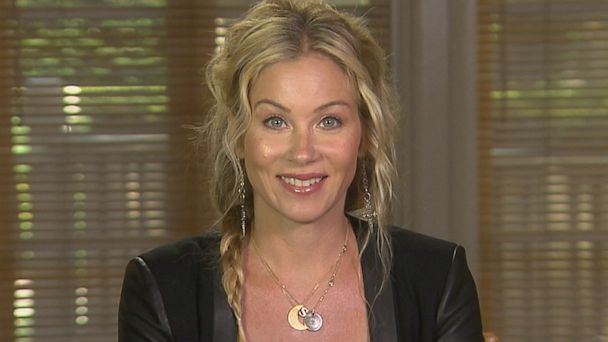What Christina Applegate Wants You to Know About Breast Cancer

ABC News
In 2008, actress Christina Applegate revealed in a " Good Morning America" interview that she had been diagnosed with breast cancer at the age of 36 and opted for a bilateral mastectomy instead of radiation or chemotherapy.
Now, five years after her diagnosis, Applegate is a wife, a mother of a young daughter and an advocate for breast cancer education and early detection, particularly for high risk women.
ABC News is going pink for breast cancer awareness. Click here for the latest screening recommendations and a list of signs and symptoms to look out for. Once you know the facts, take our pledge to understand your risk and follow the steps to protect yourself.
To kick off Breast Cancer Awareness Month, Applegate sat down with "GMA" again to explain what every woman should know about breast cancer.
Christina Applegate: 'Emotional Collapse' After Breast Cancer
"When you sit there and tell women to get screened, I almost feel like I'm being a fear monger and I don't want to be a fear monger," Applegate said. "I think that being proactive with your health and with your body is the key to staying alive for you, for your family."
Applegate discovered her own cancer early on thanks to a proactive doctor who knew she was a high-risk patient and had her get an MRI to rule out anything suspicious. A follow-up MRI done three months later showed Applegate had cancer on her right side.
"Basically they called me on the phone and told me I had breast cancer," she said.
Applegate's ability to have proper medical care and access to diagnostic tools like MRIs inspired her to create her own charity, Right Action For Women, to encourage women to talk to their doctors about appropriate screening and not be afraid of getting tested early on for breast cancer.
"I'd be more scared to find a lump on my own and it be stage four," she said. "I go to the doctor every three months. It's scary but I know that I'm ahead of the game no matter what."
Right Action for Women also provides aid to individuals who are at increased risk for breast cancer and do not have insurance or can't cover the high costs associated with breast screenings.
"I found out about how women were not going to have MRIs because of the cost and a lot of insurance companies don't cover the cost….and I just got really angry," Applegate said. "I started Right Action for Women to help provide the funds for women who did need MRI screenings and weren't able to pay for it themselves."
The Right Action for Women website includes information on the BRCA1 mutation gene, a breast cancer risk quiz, forums and resources for women diagnosed with breast cancer. Applegate says her goal is to expand the website so that it can help women prevent a breast cancer diagnosis.
"There is a way with diet and exercise, meditation and all the things we all try to do and don't," Applegate said. "I wasn't doing my best that I could up until the time I had cancer."
"Life can get really hard out there and we all have a tendency to break down or hold it in, especially women," she said. "It's finding ways to outlet your stress and eat right. Eat a lot of leafy greens. There's a lot of things you can do you take care of yourself."